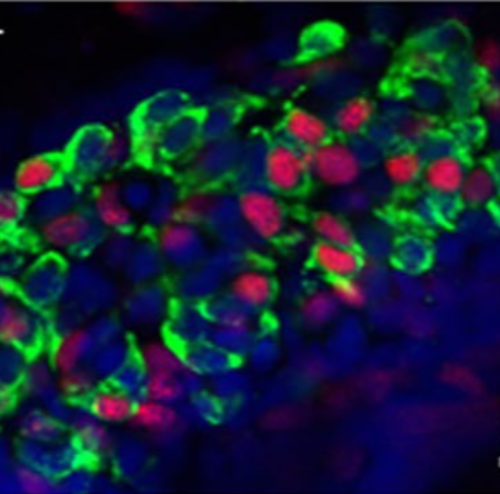Distinct Levels of Reactive Oxygen Species Coordinate Metabolic Activity with Beta-cell Mass Plasticity.
The pancreatic beta-cells control glucose homeostasis by secreting insulin in response to nutrient intake. The number of beta-cells is under tight metabolic control, as this number increases with higher nutrient intake. However, the signaling pathways matching nutrition with beta-cell mass plasticity remain poorly defined. By applying pharmacological and genetic manipulations, we show that reactive oxygen species (ROS) regulate dose-dependently beta-cell proliferation in vivo and in vitro. In particular, reducing ROS levels in beta-cells blocks their proliferation in response to nutrients. Using a non-invasive genetic sensor of intracellular hydrogen peroxide (H2O2), we reveal that glucose can directly increase the levels of H2O2. Furthermore, a moderate increase in H2O2 levels can stimulate beta-cell proliferation. Interestingly, while high H2O2 levels are inhibitory to beta-cell proliferation, they expand beta-cell mass in vivo by inducing rapid beta-cell neogenesis. Our study thus reveals a ROS-level-dependent mechanism linking nutrients with beta-cell mass plasticity. Hence, given the requirement of ROS for beta-cell mass expansion, antioxidant therapies should be applied with caution in diabetes.
Back to list
